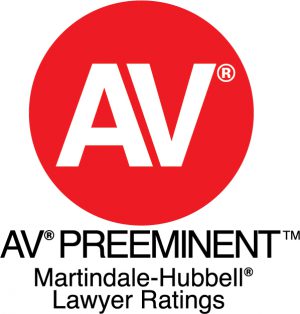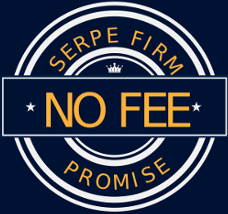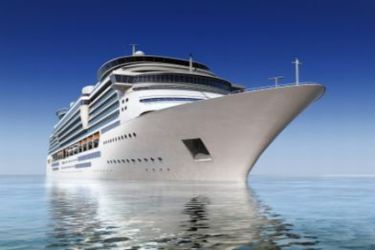Helping You Recover Compensation for Your Injuries and Anguish After an Accident that Wasn’t Your Fault
In the aftermath of a work-related accident on the water in Virginia, seeking the expertise of a maritime lawyer becomes crucial for individuals looking to recover compensation for their injuries and anguish. Not just any attorney can handle a maritime accident case.
Maritime law is a specialized field that encompasses a unique set of regulations governing accidents, injuries, and employment disputes that occur on navigable waters. Whether the incident transpired on a ship, offshore platform, or any other maritime setting, an experienced maritime lawyer possesses the knowledge and expertise necessary to navigate the intricacies of admiralty law.
You Need A Maritime Lawyer, Not A Personal Injury Lawyer
Navigating a maritime case demands a level of expertise that extends beyond the scope of general legal practice, emphasizing that not just any attorney can effectively handle such matters. Maritime law is a specialized and intricate field that governs incidents occurring on navigable waters, encompassing a unique set of rules and regulations. Unlike conventional personal injury cases, maritime cases involve specific statutes that require an in-depth understanding.
Attorneys who lack experience in this niche may struggle to comprehend the nuances associated with maritime industries, making it imperative for individuals involved in maritime accidents, such as barge collisions or tugboat incidents, to seek legal representation from a qualified maritime lawyer. These professionals possess the specific knowledge necessary to navigate the complex legal landscape of maritime cases and advocate effectively for the rights and compensation of their clients.
Norfolk Maritime Lawyer Richard Serpe
Norfolk-based maritime lawyer Richard Serpe has successfully prosecuted cases under federal maritime law, including Jones Act cases, bringing fair and just compensation to those who were injured or killed while performing their duties. Mr. Serpe obtained a Master of Laws in Admiralty after law school and has obtained the highest ranking (Proctor) from the Maritime Law Association of the United States.
He’s earned a reputation as a well-respected, hard-working attorney with a tenacious approach to every case he takes on. Mr. Serpe has a track record of success in obtaining favorable settlements and verdicts for his clients.
Best Lawyers® (2005 – Present); Norfolk Personal Injury Lawyer of the Year by Best Lawyers (2020); Virginia Super Lawyer: (2006 – Present); Avvo.com : Rated 10/10 – “Superb,” Martindale-Hubbell Law Directory: AV Preeminent rating (highest given).
Maritime Accidents Due to Negligence
Maritime accidents due to negligence occurs when individuals or entities fail to exercise the required standard of care within the maritime industry, leading to harm or accidents on navigable waters. This negligence can manifest in various forms, such as inadequate vessel maintenance, insufficient safety protocols, or the negligence of crew members. Whether it involves a shipping company’s failure to properly train and supervise its staff or a vessel owner’s neglect in maintaining seaworthy conditions, the consequences can be severe.
Victims of maritime negligence may suffer physical harm, emotional distress, and financial losses. Pursuing legal recourse in such cases typically involves engaging a maritime lawyer who specializes in admiralty law to navigate the intricate regulations and seek compensation for the injured party.
- Lack of proper safety training
- Lack of proper occupational training – crew member not properly trained for their job
- Poorly maintained, broken, or faulty equipment or machinery
- The employer fails to provide proper equipment for a crew member’s job/task
- Unseaworthy Vessel – when the vessel is not reasonably fit for its intended purpose
- Failure to hire a competent crew, negligent co-workers
- Collision with another vessel
Richard Serpe, an experienced maritime lawyer in Virginia, specializes in addressing a diverse range of cases within the maritime industry. His practice includes handling incidents such as barge accidents, tugboat accidents, commercial fishing accidents, dredging accidents, collision accidents, amputations, electrocution injuries, drowning and falling overboard, cruise ship accidents, crane and cargo accidents, as well as recreational boating accidents.
Jones Act Claims vs. Workers’ Compensation
Many are surprised to learn that maritime employees are not covered by normal workers’ compensation insurance. Instead, under The Jones Act, a seamen can file personal injury claims. If maritime workers can prove that their employer did not provide a safe environment in which to work, they can recover the costs associated with their injury.
What is covered under the Jones Act?
The Jones Act, also known as the Merchant Marine Act of 1920, is an important federal maritime law. This law protects workers who are injured or become ill at sea by allowing them to recover compensation from their employer.
To qualify for such protections, a maritime worker must fall under the Jones Act definition of a “seaman”. U.S. courts have generally interpreted “seamen” to mean anyone performing work related to a vessel’s purpose operating in navigable waters. Navigable waters meaning waters capable of being used for commerce.
The employee must also spend a “significant” amount of their time on the vessel. This is evaluated on a case-by-case basis by taking into account the circumstances of employment. However, this often means at least 30% of their time.
Maintenance and Cure Compensation
The idea is that a healthy seaman lives and works on the ship so, if he is injured and can no longer enjoy the benefits of that home, he is entitled to room and board (maintenance) and medical care to cure him of the injury (cure).
Seamen who are injured while at sea are entitled to maintenance and cure from their employers. It does not matter if the illness or injury is work-related, as long as it occurs or manifests itself while the seaman is “in service to the vessel” and was not caused by the seaman’s own willful conduct.
These amounts are paid until the seaman is either fit to return to work or until he has reached a point where additional medical care will not help him. Sometimes a seaman might be fit enough to return to work, so he will lose his right to maintenance, but additional medical care could help, so he would be entitled to additional cure.
Maintenance
Maintenance should include the cost of maintaining the seaman’s home, including rent or mortgage, taxes, insurance, and food. Historically, employers got used to paying amounts much lower than this, around 8 to 12 dollars per day. If the employer tries to pay a low amount like this, an experienced maritime lawyer will seek to show the court your ACTUAL cost of maintenance and seek a higher award.
Cure
Occasionally, an employer will try to force a seaman too use private medical insurance to pay the bills. This is not generally a good idea for the seaman because often the “cure” obligation is more broad than that provided by insurance. Cure should cover all related medical care, and also can include transportation expenses to see the doctors.
“A Settlement That Changed My Life”
“After a major maritime accident on the water, I was scared and didn’t know where to turn. The Law Offices of Richard Serpe and his great staff treated me with the utmost respect and attention that I needed. They treated me like a member of the family. I was awarded a settlement that changed my life and my family’s life, and I thank the law firm for that. Not only during the case, but after as well, the law firm has looked after me. If I had to recommend anyone, I would recommend Richard Serpe.” – Eddie S.
Norfolk, Virginia Maritime Lawyer
Hiring a maritime lawyer is essential when dealing with injury cases on navigable waters, as not just any attorney possesses the specialized knowledge required to navigate the complexities of admiralty law. Maritime law is a distinct legal domain that governs accidents, injuries, and disputes occurring at sea. Unlike conventional personal injury lawyers, maritime attorneys have a deep understanding of statutes such as the Jones Act and other regulations specific to maritime industries.
Given the unique challenges posed by incidents like barge accidents, tugboat incidents, or commercial fishing mishaps, it becomes imperative to seek the services of a seasoned maritime lawyer. Contact the Law Offices of Richard J. Serpe, PC for your free consultation.







